What is a hostel tends to be asked more and more these days as travel becomes both more affordable and practical. It touches on people’s desire to explore and to have safe accommodations during trips. The fundamental importance of hostels is tantamount to the importance of those qualities. An enjoyable trip depends on the assurance of safety while still giving you a sense of adventure and continually growing excitement. In this article, you’ll learn how to get the most out of hostels. From the hostel’s key features to business operations.
Table of Contents:
- What Is a Hostel?
- What Is the Difference Between a Hostel and a Hotel?
- Who Are the Target Guests of a Hostel?
- What Are the Key Features of a Hostel?
- What Are the Types of Hostels?
- Effective Marketing Strategies for Hostels
- Significant Hostel Technologies for Increased Revenue
- Important Hostel Management Systems
- Booking.com as an Essential Hostel OTA to Increase Revenue
What Is a Hostel?
You might know about some elements of a hostel, but they can be surprisingly hard to define. But if you’re going to get the most out of hostels, you’ll need to understand their full definition. The defining element of the larger hotel meaning is simply that it’s a budget-oriented form of lodging that promotes socialization through shared quarters. These dormitories typically house between four to twenty guests. A hostel focuses on travelers rather than people seeking accommodations for business purposes.
They often promote that ideal with tours, hosted events, special areas for learning or contemplation, and above all, the chance to connect with other people. There are 10,000 hostels in Europe and 300 in the U.S., and those numbers are growing. Newer hostels often incorporate eco-conscious elements and designs associated with boutique hotels, with additional appeal coming from locally owned properties.
Video: What Is a Hostel?
What Is the Difference Between a Hostel and a Hotel?
The distinction is important as hostels and hotels often call for very different strategies in both business and recreation. Understanding their differences means getting the most out of your experience with them and maximizing resources. The most noticeable difference is that hotel guests usually have one or two beds per room, while hostels aim for a more communal setup with many bunkbeds in shared spaces. A hostel’s shared experience saves on costs, and thus, the market for hotels and hostels is different.
Who Are the Target Guests of a Hostel?
The hospitality industry generally specializes in specific demographics in order to provide the best experiences for guests, and hostels are no different in that respect. Hostels generally aim for and refine services for specific demographics. However, hostels are unique in that they generally target a wide demographic – budget-conscious travelers. This essentially means that hostels attract people from almost every possible demographic. Larger demographics mean that digital nomads, students, and backpackers seeking to immerse themselves in the local culture might all find themselves rooming together.
What Are the Key Features of a Hostel?
Hostels have a lot to offer. But the following are the defining features you’ll find in most hostels.
Combining Affordability and Convenient Locations
The price and location of a hostel often sets it apart from the hospitality industry. Hostels typically combine great locations with low prices for guests. The importance of these elements can’t be stressed enough. The ability to provide access to normally costly areas at low prices makes hostels especially attractive. From the hostel management perspective, this is also an excellent way to use social media marketing and highlight proximity to major attractions. This capacity is largely thanks to the affordability provided by communal living. This is in opposition to the more individualized approach of hotels.
Mixing Dorms and Private Rooms
Hostels are often thought of as a service where everyone sleeps in a central location. However, a hostel often offers both dorms and private rooms. The importance largely comes from getting the best possible experience by understanding your options. You can choose a hostel that perfectly matches your own needs. Tourism is all about providing a full experience that matches people’s expectations. Hostels can provide this through a range of accommodations. On one end are camping barns, which are essentially just raised platforms. On the other hand, hostels might provide high-tech elements like charging ports.
Communal Kitchens
Communal kitchens provide great meals through fully equipped kitchens. Because hostels are self-catering, you have a vast range of gastronomic options to try out together. Communal kitchens are an important element of hostels due to the emphasis on community efforts and shared experiences. You can create and share meals together. Because the kitchens are well stocked, you’ll be able to cook your favorite dishes. But this also means that friends, new and old, can join in. Sampling everyone’s ideas and efforts is often one of the most memorable parts of the hostel experience for many guests.
Communal Areas Are the Heart of a Hostel
Communal areas are the heart of a hostel as they’re where guests gather to share their experiences. Guests can make plans and discuss results together. It’s an important distinction from the more individually focused outlook of the hotel industry. Hostels are a unique opportunity to explore worldviews and challenge assumptions. Communal areas are typically designed to attract guests with activities and comforts. This includes TVs, couches, and large tables, which are perfect for both meals and game nights. However, communal areas can also be found outdoors with gardens, BBQs, and far more.
Bars and Events Keep Things Lively
Bars and events keep things lively in hostels by providing a wide range of activities. This ranges from great drinks to live bands or classes. They’re important to a hostel in large part because of the system’s communal elements. Unlike hotel departments, hostels usually put an emphasis on organic connections. For example, food and drink are both part of the bar scene and the kitchen. Likewise, these areas are often used as a hub for the start or end of guided tours, hikes, and more. All of these activities help strengthen guest’s social connections.
What Are the Types of Hostels?
You’ve seen what defines a hostel as a hostel. But you’ll soon discover just how distinct individual types can be.
Boutique Hostels Offer Hotel-Level Luxury
Boutique hostels offer hotel-level luxury at a lower price than hotel management usually decides on. The primary benefit is the option for private rooms. Boutique options are important because they help bridge the extremes. People who want the hostel experience with a little extra comfort can still do so. The comforts provided will vary. But they’ll often include options like different food and beverages, rain showers, gyms, houseplants, and higher-quality lounge access. The private rooms tend to be closer to what you’d find with a hotel suite but still with that unique hostel feel.
Eco Hostels Provide a Sustainable Experience
Eco hostels provide a renewable experience for eco-conscious guests. This will typically mean minimizing the environmental impact of your travel and stay at the hostel. These hostels are as important as the environmental health of the planet itself. However, it’s also significant in terms of leveraging the larger eco-conscious demographic. The exact environmental strategies will differ for each hostel. However, there are some common concepts. These include water conservation, using renewable energy, recycling, and overall waste reduction. Some even merge eco-friendly concepts like growing food or preparing meals from gardens as a larger communal experience.
Video: Eco-Friendly Hostel in Thailand
Party Hostels Introduce an Area’s Nightlife
Party hostels introduce an area’s nightlife by putting an emphasis on festive experiences. For example, the hostel might have pub crawls or adjoining pubs. These hostels are especially important as they open up a less obvious element of an area’s culture. You’ll party and learn at the same time. The hostel experience is typically focussed on community, and party hostels are no exception. You’ll not only have the chance to party in new locations but also meet fun and exciting people while doing so. This includes your friends, locals, fellow travelers, and more.
Capsule Hostels Offer a Modern Twist
Capsule hostels offer a modern twist on the familiar hostel ideal. Instead of large shared rooms, a guest will use a smaller, enclosed capsule compartment. Capsule hostels are a reminder that the industry can change and evolve to leverage new ideas. The idea stems from heavily used strategies in Japan. Some of the benefits of a capsule include being able to control lighting and safety from prying eyes. It’s not just about protection from others, though. You’re also free from the worry and concern that comes from wondering if you might be inconveniencing others.
Themed Hostels Provide Extra Focus
Themed hostels provide extra focus on whatever elements a guest might desire. This can include hostels themed around movies, local culture, and specific artistic elements. The concept highlights the importance of communal interests within the hostel experience. Hostel guests are typically joined by the love of travel. This takes it further. Guests can bond over shared appreciation for whatever the theme entails. It’s a chance to dive right into your favorite subject with new friends who have similar passions. The hostels will typically have events centered around the chosen theme, along with some important local resources.
Effective Marketing Strategies for Hostels
How can a hostel let the public know about its unique features? This is where the following marketing strategies come into play.
Use the Appropriate OTA Channels
Use the appropriate OTA channels for increased visibility and outreach. Both popular and niche OTAs are important tools to connect your services with potential guests. The niche OTAs are often overlooked by competitors and will give you a huge edge and additional credibility. While larger ones increase your overall presence. The most popular among hostels are dorms.com, hostelbookers.com, bedbooker, and hostelworld. Each might yield thousands of travelers, giving you extra consideration. The more OTA visibility you have, the better since the investment on your part will be fairly minimal compared to the return.
Market Your Hostel Experience
Market your hostel experience by selling the experience rather than the specific hostel. In the end, hostels really are about the overall guest experience. It’s important because people considering hostels are already putting an emphasis on experience over specifics. What’s more, the guests themselves will help you with marketing. By focusing on experiences, you’ll find that guests post about them on social media. Your marketing can work alongside this by emphasizing similar elements like people having fun at pub crawls, swimming, or hanging out. You provide the idea, and guests will market with self-guided momentum.
Maintaining a Modern and SEO-Friendly Website
Maintaining a modern and SEO-friendly website should be among your greatest business priorities. Your website is marketing, outreach to guests, tools, and so much more. A website is the most important tool for leveraging SEO and getting attention from major search engines. Increased attention there means more business. Above all, make sure to register with Google My Business to gain local attention. But it’s also important to pair your SEO with relevant services. Both should always evolve to meet the demands of both the public and search engines. It’s your business’s centerpiece.
Prioritize Social Media Marketing
Prioritize social media marketing by establishing a relationship with your target demographic. You can engage with customers to learn from them and provide personalized services. This marketing is important for a hostel as it converges with the natural inclination of travelers to take pictures. Both parties gain from the strategy. For example, consider how you might provide special services to your guests in areas they’re visiting. They’ll take pictures, and this will, in turn, serve as a way of reaching potential guests online. People who see the fun online will want that same experience for themselves.
Create Unique and Engaging Events
Create unique and engaging events to provide emphasis on the community element of a hostel. This will help promote the idea of guests forming connections. Interaction is one of the most important elements of both hostels and great vacations. Creating events will, in turn, help to create memorable guest experiences. Ideas should tie into the local scene. However, some proven ideas include biking, food, city tours, and even excursions into areas that guests might otherwise avoid. It’s also wise to incentivize posting on social media. Highlighting the activities and fun establishes your brand online.
Video: Pancake Event in a Hostel
Offer Extras to Guests
Offer extras to guests as a way of enriching their experience while also acting as marketing for your hostel. Tours, hikes, and more are helpful. They’re not just important as a way to make your guests have a great experience. The happier your guests are, the more they’ll share experiences. Whether through word-of-mouth or social media, this type of exposure can provide huge boosts to your business. You can take the idea even further by creating specialized packages and promoting them online. For example, you might plan city tours that put emphasis on sampling local restaurants.
Focus on Local Attractions
Focus on local attractions in order to provide an authentic experience to guests. A hostel is uniquely positioned to let people live like locals. This is an important strategy as it leverages the hostel’s position within the larger community. In comparison, hotels are typically isolated with outside corporate control. Remember too that a hostel isn’t just located in a travel destination. The hostel’s staff is usually made up of locals who have enthusiasm aplenty for the area. Leverage geographic and human resources through sharable experiences. You can also improve your online presence by blogging it.
Target Digital Nomads
Target digital nomads in order to tap into one of the most dependable demographics. A small emphasis on reliable Internet connections and amenities works wonders. The importance stems from the fact that digital nomads are untethered from physical restraints and can work remotely. You can leverage yourself as their destination. Reliable, free WiFi and a place for guests to charge devices are big draws for digital nomads. However, a hostel can further sweeten the deal by providing conference rooms and shared co-working spaces. You can also attract digital nomads during the off-season by providing special incentives.
Significant Hostel Technologies for Increased Revenue
The technologies used to increase a hostel’s revenue can be divided into the following categories.
- Bed Management: Systems to streamline shared sleeping spaces for increased guest satisfaction.
- Online Booking: Software that handles reservations, checking in and out, and shows room availability along with relevant monetary metrics.
- Revenue Management: Programs to help create pricing options based on current and projected market demand.
- Channel Management: Expand the reach of your hostel and avoid overbooking with OTA synchronization.
- Unique Apps: Apps can prompt direct booking, personalized experiences, and even intra-system messaging for guests.
- Automated Marketing: Software can manage and combine marketing elements like social media, email campaigns, and CRM.
- Kiosks: Automates checking in and out for guests for increased efficiency and decreased staffing concerns.
- Property Management Systems: PMS systems manage entire hostel properties, including work with cleaning and cost management.
Important Hostel Management Systems
Hotels and hostels are both incredibly busy places. Hostels have their own version of hotel technology to help automate and manage that complexity. These systems build on one of the hostel’s most important elements – their communities. Hostels are heavily interlinked in terms of communication, staff, and guests. As such, the hostel management software needs to respect and build upon those personal connections. These systems are heavily varied but generally work by leveraging business and personal connections. The article “Hostel Management Systems: Everything You Need to Know” highlights the most important technologies for hostel management.
Booking.com as an Essential Hostel OTA to Increase Revenue
Hotel trends and hostel trends tend to go hand in hand. And this is certainly the case with travel agencies and booking systems. Online travel agencies (OTA) are digital platforms that make it easy for people to browse their options online. In contrast to similar services, OTAs let a hotel or hostel manage their own online representation. This effectively removes much of the middle management and provides more direct control. You can find out more about these new hostel-related technologies in the article “Booking Extranet: Strategies to Increase Your Revenue on Booking.com”.
What is a hostel can be explained within the hospitality industry and the tourism industry as an important element. A hostel can be described as budget-oriented lodging promoting socialization through shared spaces, such as dormitories housing multiple guests. Key features include communal kitchens, social areas, and organized events, all aimed at providing affordable, engaging experiences for travelers.
Did You Like This Article About What Is a Hostel?
You might also be interested in the following articles:
- Hotel Asset Management: Definition, Importance, and Practices
- Hotel Email Marketing: Types, Strategies and Top Tips
- Hotel Door Locks: The Main Lock System Types and Their Benefits
- Hospitality Training: Need-to-Know Courses to Train Your Staff
- Tour Companies: Benefits of Partnering for Hoteliers
More Tips to Grow Your Business
Revfine.com is the leading knowledge platform for the hospitality and travel industry. Professionals use our insights, strategies, and actionable tips to get inspired, optimize revenue, innovate processes, and improve customer experience.Explore expert advice on management, marketing, revenue management, operations, software, and technology in our dedicated Hotel, Hospitality, and Travel & Tourism categories.
This article is written by:
Hi, I am Martijn Barten, founder of Revfine.com. With 20 years of experience in the hospitality industry, I specialize in optimizing revenue by combining revenue management with marketing strategies. I have successfully developed, implemented, and managed revenue management and marketing strategies for individual properties and multi-property portfolios.

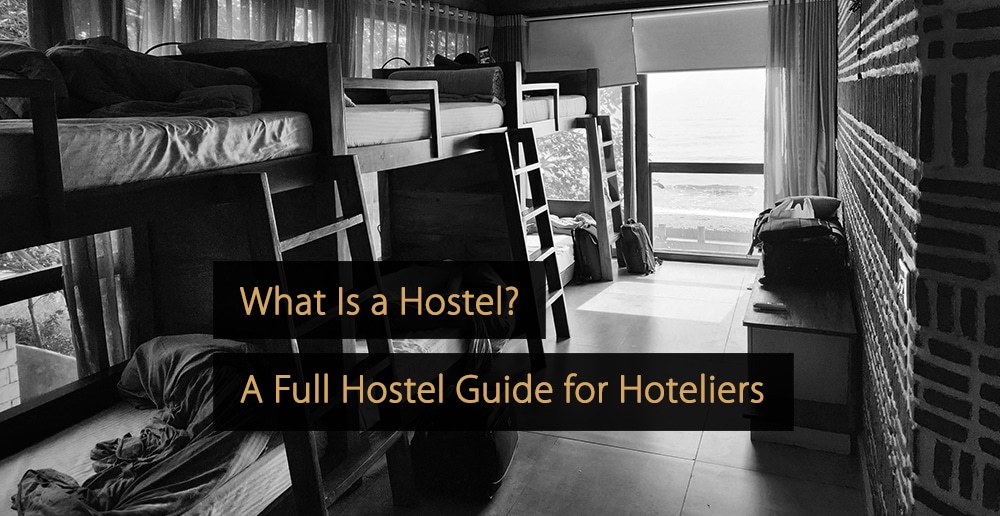
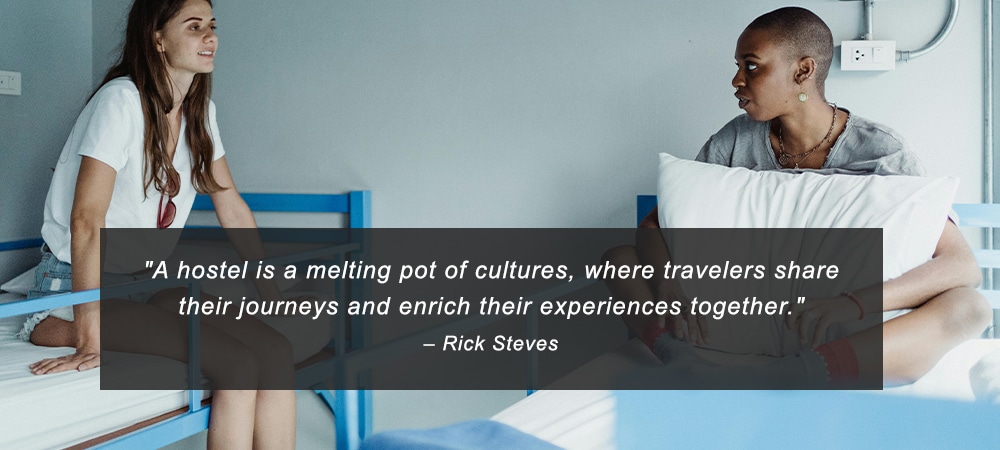
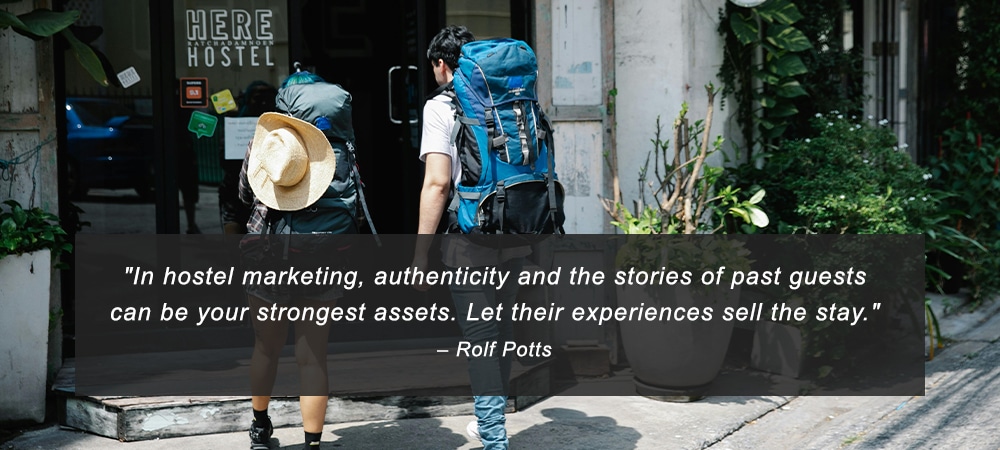


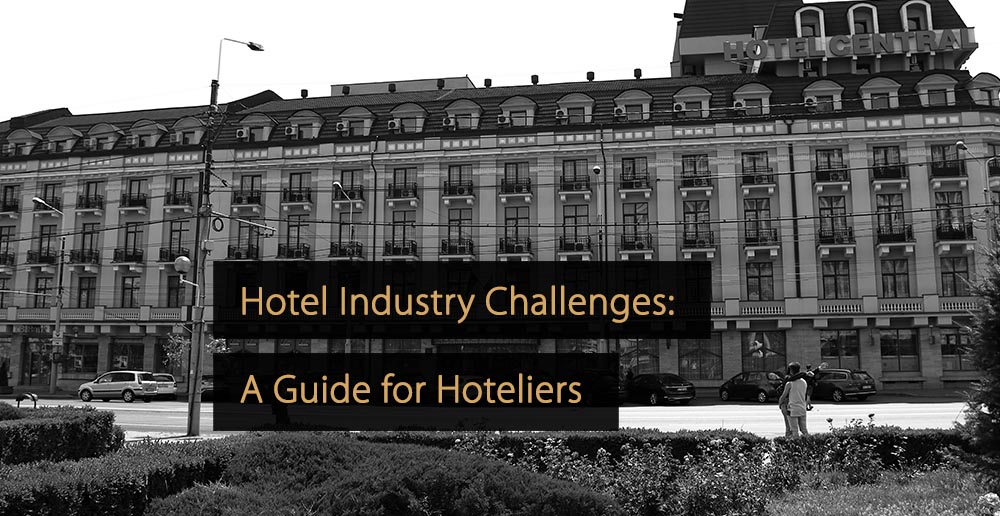

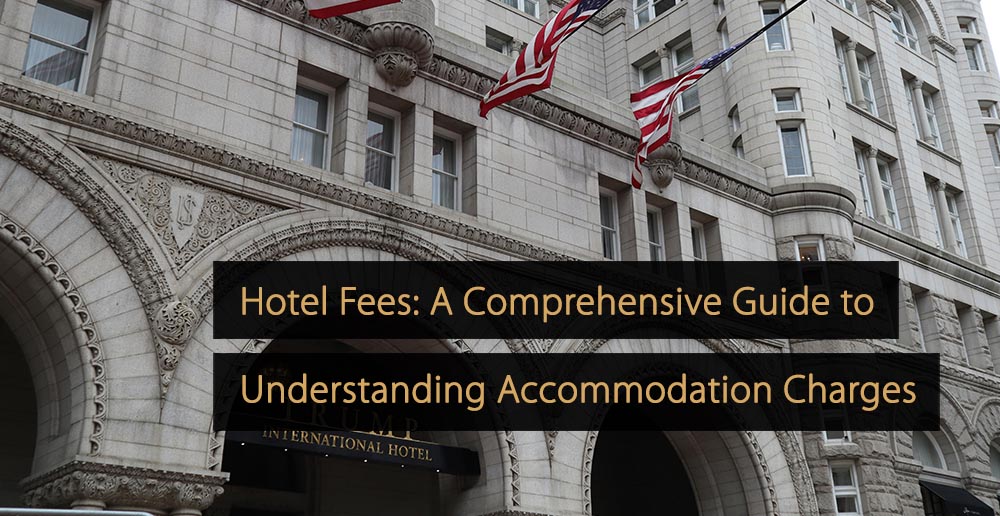

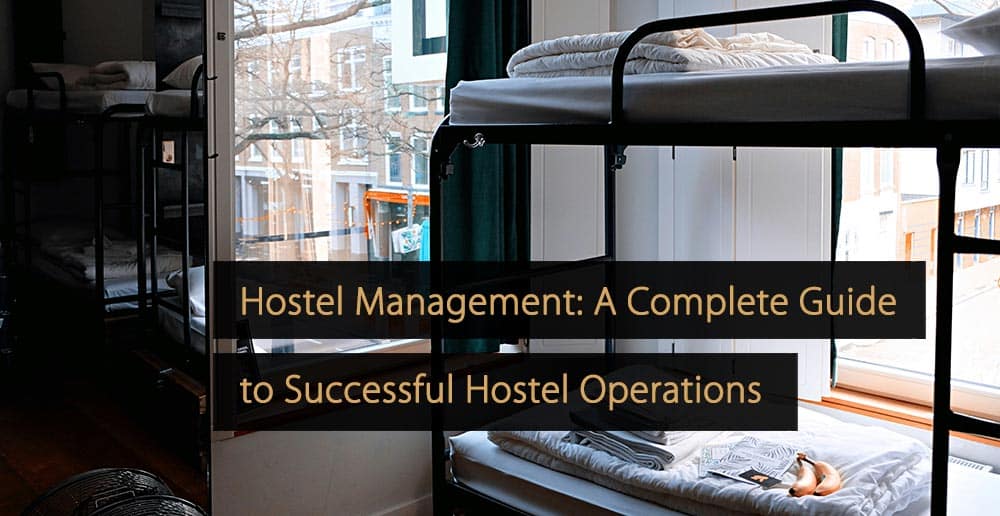
Leave A Comment